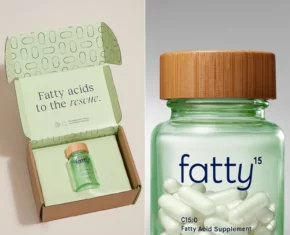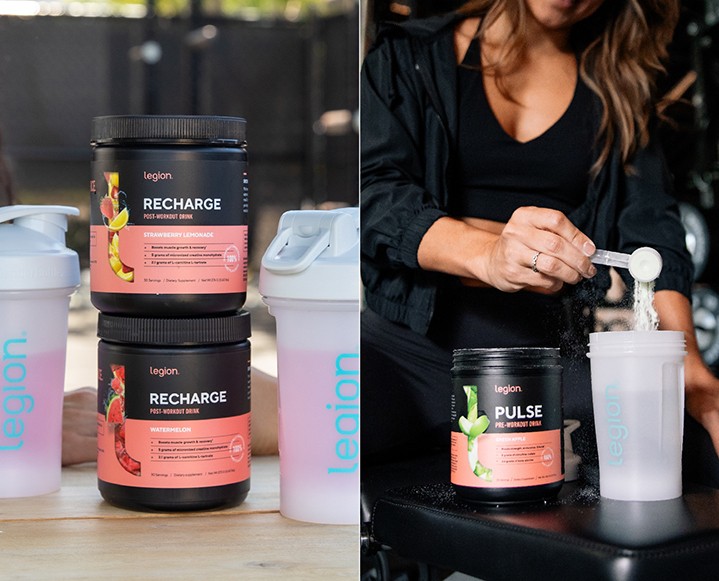Women are skilled in the art of putting everyone else’s needs above their own, but the costs of putting ourselves last can be high. Collectively, we’re learning that self-care is not selfish, but the day-to-day temptation to bring work home and answer email late into the night is still a tide we’re all up against.
It’s difficult enough to leave work at work, but when your job revolves around righting global injustice, as so many in the non-profit sector do, boundary-setting is taken to a whole new level.
Tiffany Keesey, married to Invisible Children’s CEO Ben Keesey, knows this better than anyone. Tiffany has grown with the non-profit organization (established to advocate for children caught in conflict in Central Africa) since its early days, and now consults with other cause-driven organizations on their people operations. She’s seen firsthand just how easy it can be to put ourselves last when we’re throwing ourselves into projects we believe in. After years of experience, Tiffany now leads the charge in the organization’s care for employee wellness and success. Her goal is to cultivate a culture of wellness in a sector that is typically stressed to the core bearing the weight of whatever part of the world it is they serve.
Whether she’s leading yoga workshops, corporate juice cleanses, trips to Uganda, or healthy cooking classes for interns, she is constantly setting an example for others, and giving them permission to take care of themselves as a prerequisite for taking care of others. Here’s Tiffany Keesey on fighting overwhelm and finding balance…
There is a tendency in the non-profit world to always put the cause above yourself. It took a long time for me to learn that sometimes it is okay to put yourself first.
I started at Invisible Children eight years ago when we were a small team with a huge dream of bringing attention to the world’s most neglected humanitarian crisis. Like any other start-up, we didn’t subscribe to the notion of a 9-to-5 day, and there was always more work to be done. My colleagues became my best friends, and when they were working the same long hours, there weren’t many reasons to leave work.
Pouring everything into my job became the norm. After a while, I realized I had been ignoring other important parts of my life and I started to feel anxiety that I wasn’t exercising regularly or investing in relationships. I was too tired at night to emotionally support my husband. Even in a job I loved, with a purpose I believed in, surrounded by amazing colleagues, I had intense seasons of feeling constantly overwhelmed, underwater and fatigued. I couldn’t understand how I was so tired all the time in my mid-20s (I mean, hello, I was just in college, pulling all-nighters all the time).
It finally clicked when someone told me that you cannot invest in others if you don’t invest in yourself. Since then, I’ve gotten really excited about the concept of balance – not perfection, not trying to do it all – but the awareness that we are multi-faceted, and we need to be investing into our physical, emotional, and spiritual selves.
The problems we work on in the world are too important for us to get burned out. When we’re worn down, we are less creative in our problem-solving, less innovative in our thinking, and more likely to see obstacles as the end of the road. It is a disservice to the world around us when we do not take care of ourselves.
Here’s the thing about work-life balance: there is no formula. It is complicated. The lines between our work and personal lives are becoming more and more blurred, and our jobs can easily become an extension of our values, worldview and interests. And the two sides intersect – when we’re overwhelmed at work, we’re more impatient with our loved ones. When we’re thriving personally, we’re more energized at work.
Because of that, I think it all comes down to self-awareness, prioritization and mindfulness. Be intentional about how you want to spend your time and what refuels you. Go back to what you used to love growing up: whether that’s getting lost in a good book, swimming, getting outside, or doing a hip-hop class. It is important to cultivate interests that used to be a huge part of our lives – not only does it energize us, it reminds us that we are more than just the present.
Prioritize where you do want to spend your time, and don’t waste energy trying to do it all. When you identify what you are okay with letting fall between the cracks, you actually cut out a lot of worry and guilt. For me, quality time with my husband or my friends is more important than a perfectly kept house.
Balance involves practicing mindfulness. It is about taking stock of how you are really doing in all facets of your life. What seems off this week? What do you need in order to rest and honor yourself? If you’ve fallen short, do you need to give yourself grace or get your butt in gear?
Balance has never been an excuse to not work hard. There are seasons when you need to work twelve-hour days. Show up in those times. But don’t feel trapped by staying late just to stay. Not everyone has a boss who tells them when to go home, and it takes confidence to be the one to leave when others are still working. It’s scary, but when you are doing your part, it will actually give other people permission to do the same.
We need to start shifting our mindset that being busy and being productive are not equivalent. Creativity requires rest, play and time to incubate ideas. Innovative thinking requires pulling back from the day to day. When we’re energized, we tackle the big problems instead of clearing out our inbox.
There is a movement occurring towards employee wellness, as employers are realizing that healthy employees are motivated, productive employees. But we’re not all there yet. If your organization isn’t there, maybe it just needs a champion, and maybe that champion is you.
As I set out to try and change our culture, I began by starting a dialogue around balance, self-care and wellness. I found partners in the organization who shared my excitement. We led cooking classes, convinced friends to teach free yoga and hip hop, and somehow got everyone excited about an office-wide cleanse. Then ideas started to organically take shape – the team started a running club, compared juicing recipes and tried walking meetings. We prioritized team building, supported employees in attaining personal goals, and shut down early on Fridays during the summer. Wellness started to become a core piece of who we were as an organization.
Don’t be afraid to start small or without a budget. Local businesses (chiropractors, nutritionists, etc.) are often open to coming in to host free lunch-and-learns on health and wellness. Try a recipe exchange or put on a workout DVD in the conference room after work. Keep selling the vision, and have fun with it. Chances are it will catch on, but even if it doesn’t, you will be better for it.
After all, the issues we work on demand and deserve the best of us: our most creative, bold, innovative and whole selves. Working for a cause is a marathon, not a sprint. So let’s act accordingly.
We’re profiling a few of June Guest Editor, Sophia Bush’s favorite charities all month long on The Chalkboard Mag. Get inspired for a great summer and watch for more all month with TCM!


















